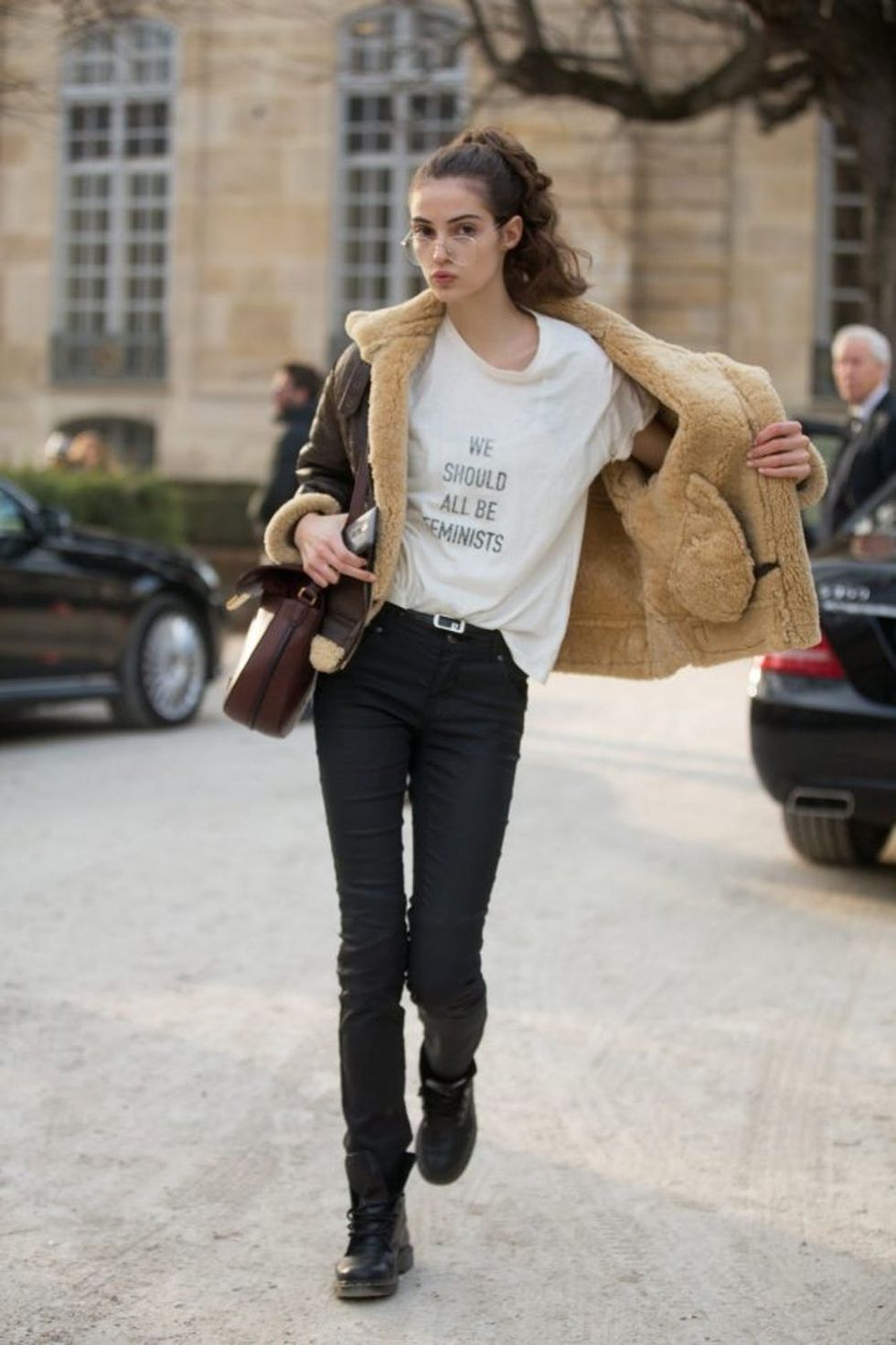“Empowerment” Needs to Be More Than an Advertising Campaign

Thanks to movements like the Women’s March and #MeToo, more people have started to pay attention to feminist issues like sexual harassment and reproductive rights — the people who run the government and the media, the people who want us to listen to their albums and watch their movies, and the people who try to sell us stuff. It’s a good thing, as Martha would say, that these groups and industries are suddenly listening and that women themselves are hearing messages of solidarity and support, but this kind of forward movement — empowerment feminism sparked and pushed ahead by women themselves — is only a small step in the direction of real change… and it’s pretty empty when it isn’t followed up with actions that place actual power in the hands of actual women.
A Dior t-shirt that says “We should all be feminists” might make us feel warm and fuzzy and super-feminist to wear, but it’s also an example of how brands are co-opting feminism and selling it back to us (in this case at $710 a pop — making Dior’s male CEO, Pietro Beccari, a very rich feminist).

We’re all about proclaiming your political allegiance on a t-shirt or sharing a pro-feminist message on social media — don’t not do it, just don’t only do it. When brands pay lip-service to women’s concerns and complaints on a superficial level, it isn’t progress. At best it’s well-meaning but ineffectual. At worst it’s the cynical co-opting of what an artist or company views as a “trend” in order to self-promote or sell something.
It’s the same when it comes pop culture and the entertainment industry. We love a movie or a music video with an empowering feminist message, but those don’t necessarily represent a move toward real equality — especially in cases where the biggest money-makers on the project are a male director and creative team. Take Beyoncé’s Lemonade for example: Out of the six directors that weren’t Beyoncé herself, only one was a woman.
And then there’s NERD’s latest series of “tutorials” (translation: music videos) that feature a female dancer as the focal point (the mega-talented Mette Towley). Like Lemonade, the videos evoke female strength and empowerment. Aesthetically, they’re awesome, but they also reinforce the feeling that a woman’s role is “muse” while men make the big decisions (and earn the big paychecks) behind the scenes.
Even the recognition women artists receive is uneven. The only woman to win in a major Grammy category this year was Alessia Cara. Recording Academy president Neil Portnow’s response to the glaring gender imbalance? It was that female artists “need to step up.” That’s a pretty tough line to swallow when you see male artists co-opting feminism to sell records.
View this post on InstagramA post shared by @ mettenarrative on
Of course, feminists want men to be part of the movement toward equality. It’s critical that they are. But feminism isn’t a glossy veneer you can splash all over the thing you’re peddling and call it a day. Real progress requires a depth of thought followed up by actions: Hire women, pay them what you’d pay a man, and please don’t assault or harass them either on or off the job. A genuine concern is that empowerment feminism might actually damage the feminist cause because it dumps the job of achieving equality at the feet of women and takes all the responsibility off of men and off of the structures and the systems that support and reinforce inequality.
As feminists, we’re more than an audience or a target sales demographic — you can’t bottle equality or print it on a t-shirt. We don’t need brands to tell us we’re beautiful or smart or powerful. We need companies that offer parental leave, provide workers with affordable healthcare, don’t destroy the environment, give women creative control, and pay them the same amount that they’d pay a man.
There are varying definitions of what a feminist is or should be, but one thing is certain: It’s a hell of a lot more than a marketing tool.
What do you want politicians and companies to do to support women in a meaningful way? Tell us about it on Twitter.
(Photo via Melodie Jeng/Getty)


















